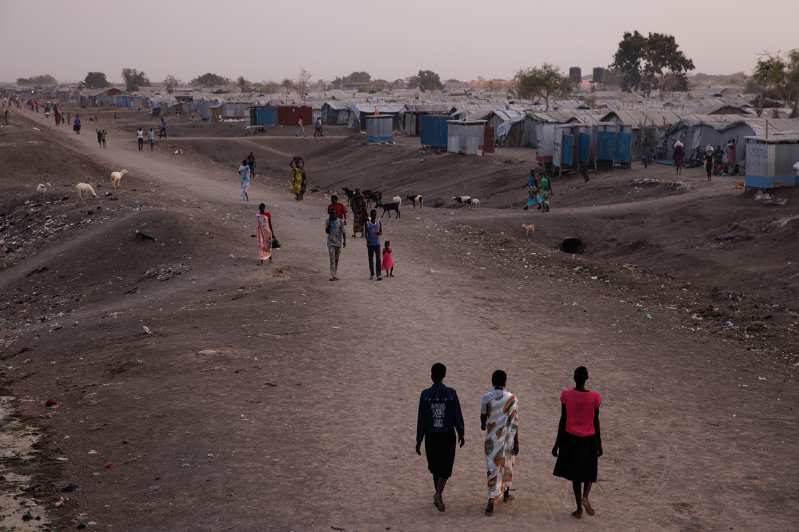
Recent data from a United Nations report on ‘Migration Dynamics, Refugees and Internally Displaced Persons in Africa’ sheds light on the migration dynamics within Africa, revealing a continent experiencing significant movement both within its borders and beyond.
Attitudes towards migrants have varied over time and in different countries but in politicized environments and at times of economic difficulty, they are often perceived as a challenge, burden or even threat to communities in the host countries. The Church, however, has played and can continue to play a unique and vital role in reaching and serving migrants, according to experts.
According to the UN’s data, over 31 million Africans have migrated from their birth countries, with a majority opting to remain within Africa itself. Contrary to common perceptions, intra-regional migration dominates, particularly in west and southern Africa, and only about 25 percent of African migrants head to Europe, the report states.
The factors driving migration are diverse and complex. Economic disparities, conflict, persecution, and environmental challenges are among the key contributors pushing individuals and families to seek new horizons.
Multiple reports and studies have been published on the topic in recent times, confirming trends and reasons why people choose or are forced to leave their countries.
An Africa Centre for Strategic Studies report published earlier this year notes that African migration continues to experience persistent upward pressures – extending a 20-year pattern. Limited economic opportunity, conflict, repressive government, growing youth populations, and climate change are the primary drivers behind the approximately one million new migrants over the past year, it says.
This adds to the 43 million African migrants overall according to their estimates. A majority of these, mostly young and single migrants, remain on the continent in pursuit of employment opportunities in urban hubs. Others seek jobs outside the continent, primarily in the Middle East and Europe, though Africans comprise just 6.6 percent and 8.2 percent of all migrants in those regions respectively.
In an analysis of migration trends in Africa, New South Institute research consultant Michael Mutava highlights that migration in Africa is “complex and multifaceted”, with a range of “push and pull factors” that drive people to move within and outside the continent. He says, “While there are challenges and risks associated with migration, including exploitation and human rights abuses, migration is also a vital source of economic and social development for individuals, communities, and countries. It should be facilitated rather than suppressed.”
Serving refugees as an opportunity for the Church
Among the migrants, which is a more general term used for anyone not living in their home country for whatever reason, there are those who are forced to flee and are thus considered refugees. According to the United Nations, “A refugee is strictly defined in international law as a person who is fleeing persecution or conflict in her or his country of origin.”
Current data estimates refugees and internally displaced people to number around 108 million globally, the majority of which (76 percent) are hosted by low- and middle-income countries.
In an article published by the Overseas Ministries Study Centre’s International Bulletin of Mission Research, Cindy Wu, who serves as program director at a refugee center, commented on migration trends and the Church’s response based on data in the third edition of the World Christian Encyclopedia. She observed that ministry to refugees must first confront and address barriers to welcoming them.
The author of A Better Country: Embracing the Refugees in Our Midst and co-author with Todd Johnson of Our Global Families: Christians Embracing Common Identity in a Changing World, Wu comments that such barriers “include fear of refugees as ‘other’, concerns over economic impact and demographic change, and a mind-set of scarcity. It is hard to welcome someone if we see them as a threat or a burden. Many countries rely on migrant workers for their economy but draw the line when it comes to resettlement and the potential of resultant change in cultural identity.”
Unfortunately, resettlement for refugees – which is defined as providing them with permanent residence status – is often viewed as “unrealistic” leaving many with a feeling of being “stuck”, Wu comments.
Alessandro Gusman, who explored the intersection of religion, affect, and power within modern nation-states, uses a similar expression. He delves into the experiences of Congolese refugees residing in Kampala, Uganda. Amidst the challenges of displacement, Gusman contends that these refugees draw upon the theological affects of trust and hope, finding solace and meaning within a Christian narrative. However, as the refugee crisis persists, Gusman observes a transition from hope to a sense of "stuckness" among these individuals.
Wu points out that followers of Christ have historically played a significant role in welcoming refugees and providing for their needs globally and can continue to make a difference today. “Churches are more than capable of providing robust assistance with refugee integration. In light of the movement of God and his people, let us be radical and ready to fulfil the mission of God by welcoming the stranger,” she writes.





